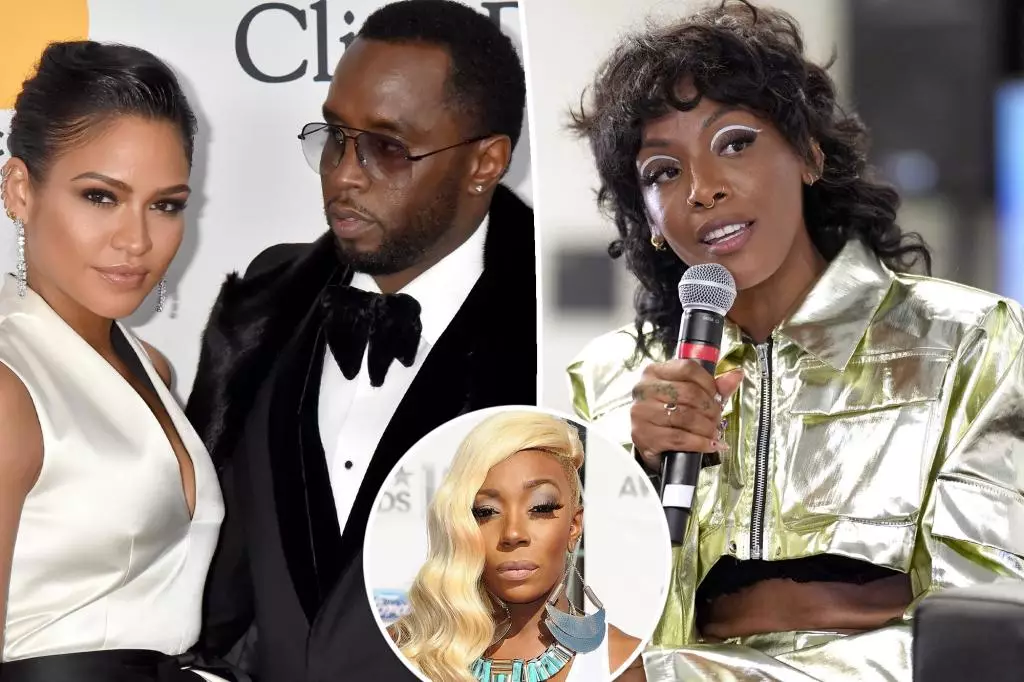Kalenna Harper, a former member of the musical group Diddy-Dirty Money, is at the center of a whirlwind surrounding the recent lawsuit filed by singer Dawn Richards against renowned music mogul Sean “Diddy” Combs. As Richards recounts her traumatic experiences with Combs, Harper has taken decisive steps to disassociate herself from the allegations, firmly stating that she did not witness any incidents of abuse during her time working with Combs. This situation underlines the complexities of personal testimony and its impact on public perception, especially in cases involving high-profile figures.
In a public statement released on Friday, Harper made it clear that her experiences differ significantly from those of Richards. She expressed her respect for Richards’ right to share her viewpoint but emphasized that her account does not apply universally. It is a complex dance that individuals face when navigating the narratives of abuse — while some may choose to speak out, others may have entirely different experiences that lead them to silence or dissent.
The gravity of Richards’ allegations is not to be taken lightly. In her lawsuit, she accuses Combs of severe misconduct, which includes claims of sexual assault and emotional torment. Furthermore, she alleges that Harper, along with other personalities, observed abusive behavior towards Cassie Ventura, Combs’ ex-girlfriend of ten years. Richards details instances where she and Harper purportedly urged Ventura to escape the toxic environment created by Combs. Such allegations raise critical questions about the culture of silence that often surrounds abuse within the entertainment industry and the solidarity expected among those who witness such situations.
The purported threats made by Combs to Harper and Richards, as laid out in the lawsuit, paint a striking picture of power dynamics in play. Harsh phrases like “Y’all bitches don’t get in my relationship” underscore a troubling environment that may intimidate witnesses from coming forward. The nuances of group dynamics in abusive environments are often complex, and the differing testimonies can lead to further confusion and distress.
In light of the lawsuit, Harper’s effort to detach herself from Richards’ narrative is understandable, especially considering the potential implications for her image and career. The music industry is notorious for its scandals, and aligning oneself with accusations can have lasting effects. Harper asserts that the details shared by Richards are inconsistent with her own experiences, emphasizing her intent to clarify her position.
“Many of the allegations and incidents described in this suit are not representative of my experiences,” Harper stated, echoing a sentiment that many victims of abuse may relate to: the struggle to express one’s truth amid a cacophony of competing narratives. It is essential to navigate these issues carefully, weighing the impact of one’s silence against the potential for backlash.
The repercussions for Combs extend beyond Harper’s dissociation. With multiple individuals stepping forward to accuse him of various forms of abuse, the music mogul’s legacy is hanging by a thread. Richards’ claims have emerged amidst a tapestry of accusations against Combs that date back to Ventura’s explosive lawsuit last November, which sparked a wave of denunciations from other accusers. This surge of allegations points to a larger issue within the industry, highlighting the urgent need for cultural change.
Combs’ legal team has voiced strong opposition, framing Richards’ allegations as unfounded and opportunistic. The remark highlighting the timing of the lawsuit coinciding with Richards’ album release reveals the battle not only for justice but also for visibility in an industry that frequently sidelines the claims of marginalized voices.
As the legal landscape continues to evolve, a critical examination of the broader implications of such accusations is necessary. The dynamics at play—where some individuals choose to share their stories while others opt for silence—reflect the complexities of experiences surrounding abuse.
Harper’s decision to distance herself brings focus to an often-overlooked aspect of these narratives: the varied personal truths in a singular story of alleged abuse. It’s vital that as a society we approach such claims with nuance, acknowledging the multiplicity of experiences while fiercely advocating for accountability and justice. In the battle against abuse and the pursuit of truth, the importance of listening to all parties involved cannot be overstated.

